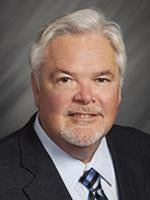The Office of Inspector General of the U.S. Department of Health and Human Services (HHS-OIG) has issued Advisory Opinion No. 23-08 regarding a proposed arrangement in which a durable medical equipment supplier that manufactures cochlear implants provides a compatible free hearing aid to any individual receiving one of its cochlear implants.
The HHS-OIG concluded the proposed arrangement, if undertaken with the requisite intent, would generate prohibited remuneration under the Federal Anti-Kickback Statute (AKS) and the Beneficiary Inducement Civil Monetary Penalties (CMP) laws.
The supplier manufactures and distributes implantable hearing solutions, including internal cochlear implants and an external sound processor. These are sold to hospital systems and ambulatory surgical centers (ASC). The device can be implanted in either or both ears based upon the patient’s healthcare provider decision.
Some patients that receive an implantable device are also candidates for bimodal hearing, where a cochlear implant and sound processor is used on one ear and a hearing aid on the other ear. The ear without the cochlear implant and sound processor must have moderate-to-severe hearing loss. The proposed arrangement by the supplier would provide the hearing aid for free, as hearing aids are generally not covered by Medicare. While a hearing aid in the other ear may improve hearing outcomes, the device works properly with or without the additional hearing aid.
As part of the proposed arrangement, the supplier would provide the hearing aid either without an imposition of financial need or establish a financial need to those whose household incomes are at or below 300 percent of the federal poverty level.
In this proposed arrangement, the supplier additionally certified the following facts:
- The device is reimbursable by federal health care programs, including Medicare, with certain limitations on coverage
- The device is comparable to other options for cochlear implants and sound processors, leaving the choice to the patient and provider’s judgment
- The free hearing aid would range in cost from $1,180 to $2,240
- Under the proposed arrangement, the hospitals and ASCs would certify they:
- Would not bill patients or federal healthcare programs for the hearing aid
- Would advise patients and audiologists in writing that they may not claim insurance reimbursement for the hearing aid and that the audiologists may charge patients only their usual and customary fee for fitting the hearing aid
The HHS-OIG concluded the proposed arrangement would implicate the AKS and the CMP because the supplier would provide remuneration in the form of a free hearing aid, which may induce ordering of the reimbursable device by the patients’ providers, hospitals, and ambulatory surgery centers. The AKS safe harbor for arrangements for patient engagement and support was inapplicable since the value of the hearing aid exceeds the safe harbor’s $570 cap.
Under the CMP, neither the promoting access to care exception nor the financial need-based exception would apply since the hearing aid is not required for the device to work properly and the hearing aid would be conditioned on the implantable device purchase. Prior HHS-OIG guidance on gifts and inducements has recognized that providing free items or services can lead to steering, unfair competition, improper utilization, and other concerns.
The HHS-OIG determined the proposed arrangement could inappropriately induce patients to select the device over a competitor’s cochlear implant or other clinically appropriate items. The proposed arrangement could also result in unfair competition, with large suppliers with greater financial resources having an advantage over competitors who do not give the same benefit.
Key Takeaways
The opinion reiterates the HHS-OIG’s concern over gifts and inducements when purchasing an item or service. Absent an applicable exception or safe harbor protection, it appears the HHS-OIG will continue to scrutinize free gifts and for unfair competition, steering, improper utilization, and quality and cost concerns.






 />i
/>i

